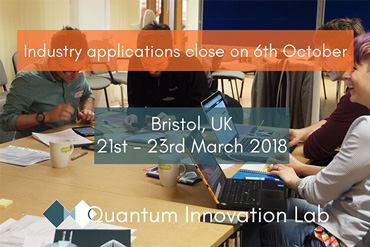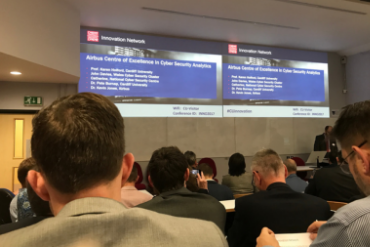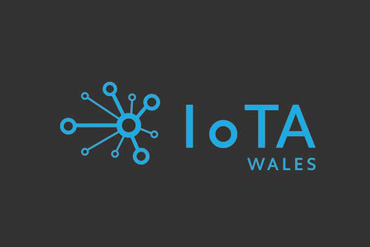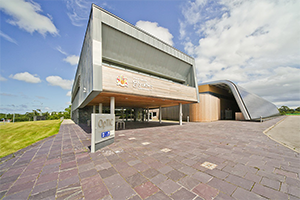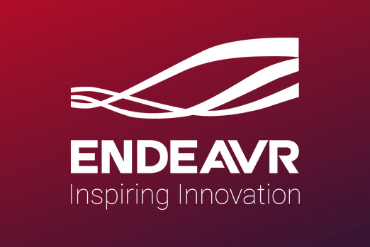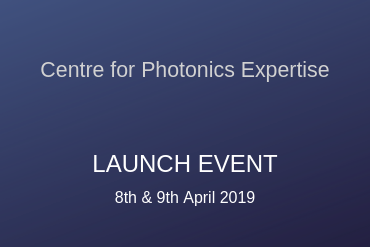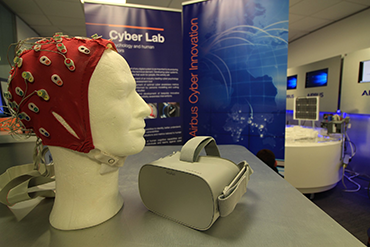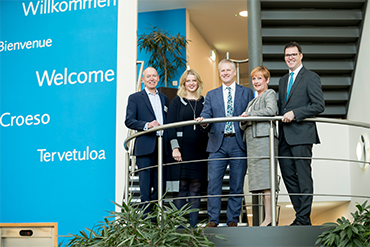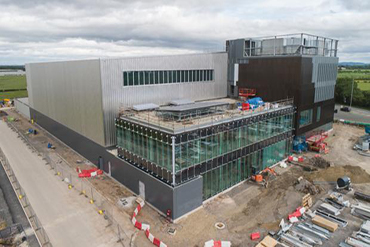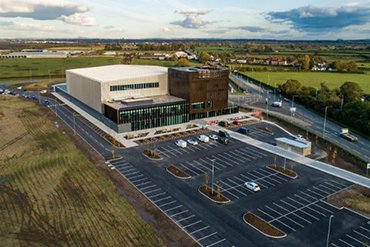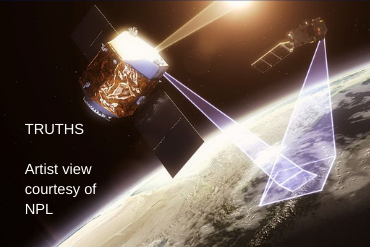Experts predict that harnessing the quantum world – the behaviour of matter and energy on the atomic and subatomic level – will revolutionise technology by making it faster, smaller, more secure and, ultimately, more useful for a wide variety of applications.
The Government anticipates that quantum technology will be an industry worth £1 billion to the UK economy in the next 10 years, boosting British business and making a real difference to our everyday lives.
The £43 million Quantum Technologies Innovation Centre (QTIC) has been funded in partnership by £15 million from the West of England Local Enterprise Partnership (LEP), £21 million from industrial partners and £7 million from the University of Bristol. It will be based in the University’s new enterprise campus, to be built in the heart of the city.
More than 200 researchers at the University will work in partnership with companies to develop the prototypes of tomorrow and play a major role in establishing new quantum businesses. Importantly, the centre will provide affordable specialist incubation facilities for businesses harnessing the quantum advantage to create new products and services.
Airbus is one of QTIC’s leading industrial partners and it seeks to develop applications in the area of satellite communications secured with quantum physics, to use ultra-powerful quantum computing and to adopt sensing beyond the precision of today’s technology.
In its first 10 years, it’s anticipated the centre will lead to 9,000 new jobs and generate almost £300 million for the economy. It will enable the design, development and prototyping of quantum devices for secure communications, new sensors, simulators and ultra-powerful computers.
These new technologies will impact upon society and all major market sectors, including defence, finance, aerospace, energy and information and communications technology (ICT) in ways that cannot yet be predicted.
The University’s Quantum Information Institute is already working on a new generation of machines that exploit quantum physics to radically transform our lives, society and economy, including:
- Quantum secure communication systems for individuals, corporations and government.
- Precision at the quantum limit for sensors used in environmental monitoring, biomedical applications and security.
- Quantum simulators to design new materials, pharmaceuticals and clean energy devices.
- Ultra-powerful quantum computers to tackle challenges in big data and machine learning.
The full-scale facility will open in 2021. Once complete, the centre will include a mixture of specialist labs, incubation facilities, office space, meeting rooms and conference facilities to co-locate industrial engineers and entrepreneurs with University researchers.
It will also boast a talent academy to support the training of apprentice technicians through to PhD qualified quantum engineers and entrepreneurs; an enterprise hub allowing for start-up and early incubation of new businesses; access to a global network of quantum inspired engineers, scientist, venture capital, industrialist and entrepreneurs; and affordable access to outsourced semi-conductor chip fabrication.
The facility will form a key part of the new £300 million enterprise campus next to Bristol Temple Meads train station, sitting alongside research and teaching in the fields of data analytics, cybersecurity, communications and networks, digital health, smart cities, transport, robotics and autonomous systems, and creative digital technologies.
Mustafa Rampuri, Programme Manager for QTIC, said: “QTIC is the world’s first dedicated open access innovation centre facility for developing a broad spectrum of quantum technologies. It provides pay-as-you-go incubator labs and office space, access to state of the art equipment, supported by experts in a range of business, technology and manufacturing areas.
“It’s an ideal time to take these technologies out of the lab and engineer them into commercial products and services, ensuring that the UK and Bristol region is the epicentre of a global quantum revolution.
“The opportunities are vast and very exciting. Our aim is for the facility to be an internationally recognised centre for the engineering and commercialisation of practical integrated quantum technologies, enabling companies from any sector to co-create new products and exploit the quantum advantage.”
Paolo Bianco, R&T Co-operation Manager at Airbus, said: “We are looking forward to working with QTIC and the University of Bristol on quantum topics to support and establish a supply chain for these technologies, essential for our future ability to bring quantum enhanced platforms to market.
“QTIC’s work with the SME community aligns perfectly with Airbus’ aspiration to work with a variety of partners to development such technologies. Our aim is to eventually adopt these in the Airbus portfolio to generate new products and supply customers with leading edge capabilities which grows and future proofs our business.”
Professor Hugh Brady, Vice-Chancellor and President at the University of Bristol, said: “The new Quantum Technologies Innovation Centre embodies our vision for the new campus – a place where we will be working with partners, large and small, to co-create new technologies and bring exciting new ideas to fruition, while building a talent pipeline of graduates who embrace social responsibility as well as opportunity.
“The opportunities presented by quantum technology are endless, with the potential to bring far-reaching benefits to society. With Bristol recently being named as the UK’s smartest city, I cannot think of a better city to lead the way in this exciting field of research and discovery.”
The Government has shown its commitment to making the UK a ‘go-to’ place for the development and commercialisation of quantum technologies, investing £270 million over five years into a National Quantum Technologies Programme to accelerate the translation of quantum technologies into the marketplace.
The University of Bristol is a major partner in two hubs and predicts it will help to establish over 40 new quantum businesses as a result, which in turn will benefit from the facilities on offer at QTIC.
List of industry partners and supporters
- Airbus Defence and Space
- Boeing Defence UK
- DWave Systems
- Keysight
- KETS
- Qontrol Systems
- A number of start-up quantum businesses




